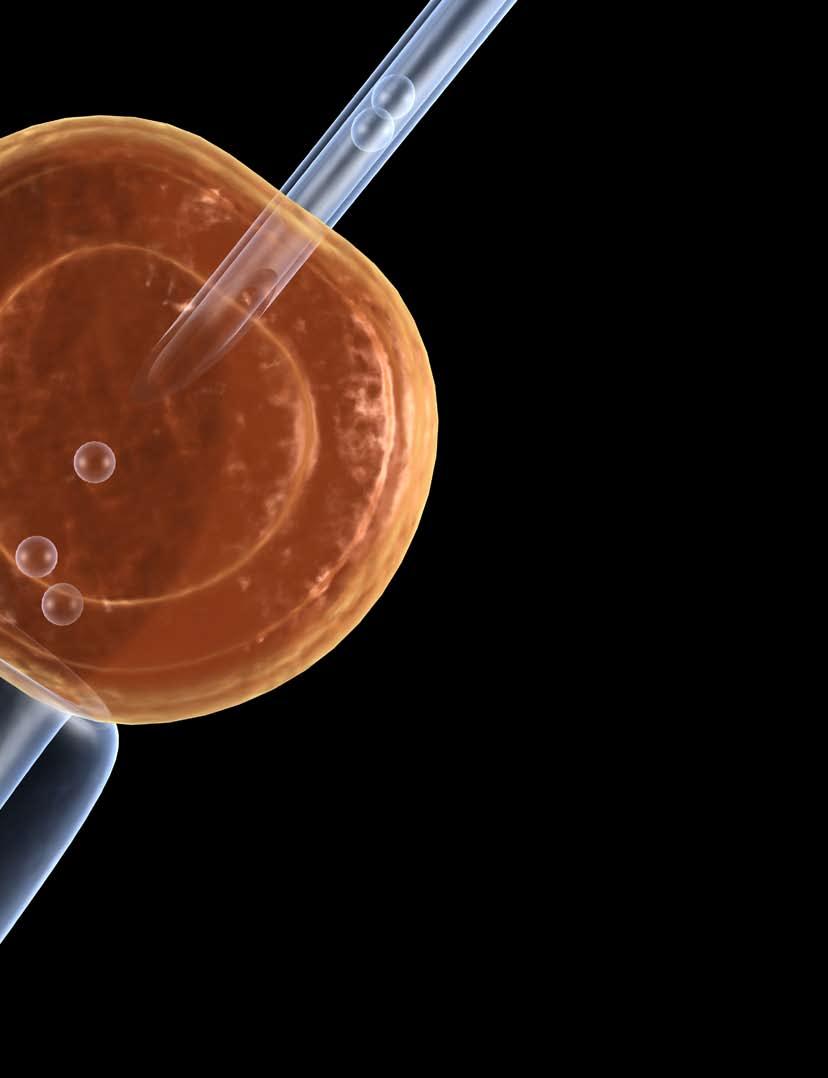
3 minute read
Stem Cell Research: Understanding the Basics
By Rev. Dr. James I. Lamb
Movie stars promote it. Major news publications cover it extensively. It is blogged about frequently. What stand should a Christian take on stem cell research? We can answer that question relatively easily when we understand some basics.
Advertisement
Understanding when Life Begins
The question of when life begins is a scientific question. The scientists most qualified to answer are embryologists. Embryologists concur that life begins when the genetic material of egg and sperm join at conception. Medical schools teach this in their embryology textbooks.
Scripture affirms this scientific truth. “Surely I was sinful at birth, sinful from the time my mother conceived me” (Psalm 51:5 NIV). Since we are sinful from the moment of conception, we must be human beings from the moment of conception. This is precisely why Jesus was “conceived by the Holy Spirit.” He passed through all stages of human development to redeem us from our sinful human nature.
Understanding the Source of Embryonic Stem Cells
What we hear so much about is embryonic stem cell research (ESCR). Embryonic stem cells are derived from a human embryo at about 5 days after conception. At this stage, the human being is a hollow ball with a thin outside layer only one cell thick. When the embryo reaches the uterus, this layer forms the placenta. Inside this hollow ball is a cluster of cells, the inner cell mass. These cells will soon begin to differentiate into the various tissues—nerve, muscle, skin, etc.—that make up the human body. Each of these cells, then, has the potential to become any tissue in the body. These are the “stem cells” that researchers want in an effort to treat disease. However, a five-day-old little girl or boy must be destroyed in order to obtain these stem cells.
The Christian must oppose ESCR because it violates God’s Fifth Commandment against the taking of innocent human life. The potential for future cures for human beings cannot justify the destruction of human beings. ESCR also violates the “helping and befriending” aspect of the Fifth Commandment. Since life begins at conception, that new person is our neighbor from that moment. We are to love our neighbor as ourselves (Mark 12:31). We are to speak up for those who cannot speak for themselves (Proverbs 31:8-9).
Understanding other Sources of Stem Cells
Christians do not oppose all forms of stem cell research. Embryos need not be destroyed in order to obtain stem cells. Stem cells called “adult” stem cells are found in a variety of tissues in our bodies. Umbilical cord blood is another rich source of stem cells. Proponents of ESCR have downplayed adult stem cells because it was once thought that they did not normally have the capability of becoming other cell types as do embryonic stem cells. However, research now shows that they do. Bone marrow adult stem cells, for example, have the ability to become virtually every other cell type. Adult stem cells have already been used to treat a variety of diseases in human beings. No diseases are being treated with embryonic stem cells. Even more recently, scientists have been able to “induce” a normal body cell into becoming just like an embryonic stem cell!

Understanding the Theology of the Cross
No one would deny the heartache and struggle of having an incurable, chronic disease. We can understand that the strong desire for a cure may lead one to place hope in things like ESCR. But in his explanation of the First Commandment in the Large Catechism, Luther states that trusting in the one true God means expecting “nothing but good from Him especially in distress and want” (emphasis added). God has shown His love for us on the cross, not in the absence of disease. The cross also assures us that God can and does work through suffering to produce great good. The greatest suffering of all time—Christ suffering for the sins of the world—produced the greatest good of all time: forgiveness and the assurance of eternal life to all who believe.
Final Thoughts
The advances in stem cell research are gifts God bestows to enhance and extend our lives. As with all gifts, we can use them in ways God did not intend. God does not intend that we destroy tiny human beings in order to help other human beings. God is opening doors for research using stem cells from sources other than human embryos. These we may and should pursue for the betterment of God’s wonderful gift of life.
For more information:
Lutherans For Life has a brochure and a DVD on Stem Cell Research. Go to www.cph.org/c-1018-bioethics.aspx?REName=Shop by Category
Rev. Dr. James Lamb is Executive Director of Lutherans for Life. He can be reached at jlamb@lutheransforlife.org.










